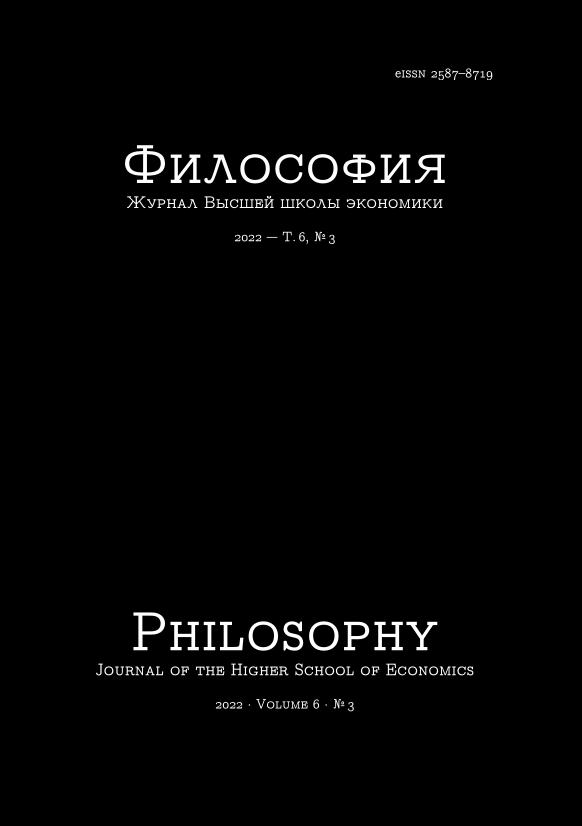На пути к «духовной истории техники»
фрагмент одного проекта Ханса Блюменберга
Аннотация
Настоящая статья представляет собой развернутое предисловие, посвященное не столько реконструкции взглядов немецкого философа Ханса Блюменберга (1920–1996) на технику, сколько контекстуализации его раннего эссе «Отношение природы и техники как философская проблема» (1951), которое интересно еще и тем, что может рассматриваться как фрагмент незавершенного проекта под названием «Geistesgeschichte der Technik». Исследование показывает укорененность Блюменберга в дискуссиях вокруг техники в Германии (философская антропология, пессимистическая культуркритика). В статье анализируется, каким образом молодой Блюменберг реагирует на проблематику, представленную у Гуссерля, Хайдеггера, Гелена и других авторов. Особое место в статье занимает обзор философии техники в «Проблемах социологии знания» (1926) Шелера, который — и это один из двух главных тезисов статьи — предположительно оказал решающее влияние на постановку вопроса о технике у Блюменберга и на ряд частных решений. Значение Шелера для дискуссии о технике в Германии до и после Второй мировой войны сводится к трем пунктам. (1) В основе процесса технизации Нового времени лежит некий инстинкт власти. (2) Лишь разрыв с охватывающей человека культурой Средневековья позволяет генетически объяснить мир, в котором наука и техника в их взаимовлиянии оказываются следствием, а не причиной. (3) Философия в качестве метафизики позволяет увидеть и назвать по имени этическую «вину» новоевропейского общества. Второй тезис моей статьи заключается в том, что Ханс Блюменберг — автор, который в итоге не создал «философию техники», и все написанное им по этой теме занимает среди его сочинений, посвященных генезису Нового времени, скорее периферийное место, что в то же время не умаляет значимости его высказывания.
Скачивания
Copyright (c) 2022 Философия. Журнал Высшей школы экономики

Это произведение доступно по лицензии Creative Commons «Attribution-NonCommercial» («Атрибуция — Некоммерческое использование») 4.0 Всемирная.






